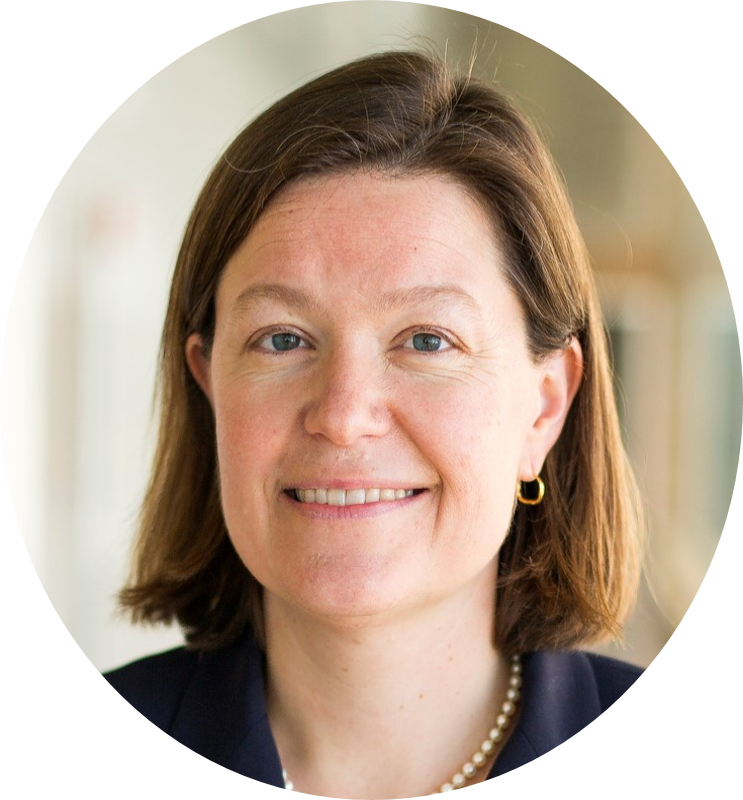Cyber-Physical Energy Systems and Energy Revolution
 Xiaohong Guan
Xiaohong Guan
Professor
Xian Jiaotong University
Abstract:
Cyber-physical systems are the basis for the new industrial revolution. Growing energy demand and environmental concerns require a large number of renewable energy resources, efficient energy consumption, and energy storage devices and demand responses. Cyber-physical energy systems (CPES) in a broader sense provide a desirable infrastructure for efficient energy production and consumption with uncertain energy resources. This speech will focus on the structure of CPES, and the problem of security-constrained planning and scheduling of CPES, including new renewable energy sources with high levels of uncertainties. The newly developed analytical conditions are discussed for fast identifying the security bottlenecks in a complex power grid when new renewable energy sources coordinate with storable energy sources such as hydro and pumped storages. A new method is introduced to solve the well-knows N-k contingency security assessment problem with 2-3 orders of reduced computational complexity. Production, storage and transportation, and utilization of hydrogen as a main energy source are also introduced. It is shown that the hydrogen-based CPES will provide an ideal infrastructure for energy supply and consumption with almost no pollution, and it will likely lead to the energy revolution anticipated in the new century.
biography:
Professor Xiaohong Guan received his B.S. and M.S. degrees in Control Engineering from Tsinghua University, Beijing, China, in 1982 and 1985, respectively, and his Ph.D. degree in Electrical and Systems Engineering from the University of Connecticut in 1993. He was a senior consulting engineer with Pacific Gas and Electric from 1993 to 1995. He visited the Division of Engineering and Applied Science, Harvard University from Jan. 1999 to Feb. 2000. From 1985 to 1988 and since 1995 he has been with the Systems Engineering Institute at Xi’an Jiaotong University, Xian, China, and was appointed the Cheung Kong Professor of Systems Engineering in 1999, and Dean of School of Electronic and Information Engineering since 2008. From 2001 he has also been with the Center for Intelligent and Networked Systems, Tsinghua University, Beijing, China, and severed as the Head of Department of Automation, Tsinghua University, 2003-2008.
Professor Guan is a member of Chinese Academy of Sciences and an IEEE Fellow. He has been serving as the Editor of IEEE Transactions on Smart Grid since 2014. His research interests include economics and security of networked systems, optimization-based planning and scheduling of electrical power and energy systems, manufacturing systems, as well as cyber-physical systems including smart grids and sensor networks.
Cyber Security and Privacy in Networked Control Systems

Karl H. Johansson
Professor
KTH-Royal Institute of Technology
Abstract:
Security and privacy is of growing concern in many control applications. Cyber attacks are frequently reported for a variety of industrial and infrastructure systems. For more than a decade the control community has developed techniques for how to design control systems resilient to cyber-physical attacks. In this talk, we will review some of these results. In particular, as cyber and physical components of networked control systems are tightly interconnected, it is argued that traditional IT security focusing only on the cyber part does not provide appropriate solutions. Modeling the objectives and resources of the adversary together with the plant and control dynamics is shown to be essential. The consequences of common attack scenarios, such denial-of-service, replay, and bias injection attacks, can be analyzed using the framework presented. It is also shown how to strengthen the control loops by deriving security- and privacy-aware estimation and control schemes. Applications in building automation, power networks, and automotive systems will be used to motivate and illustrate the results. The presentation is based on joint work with several students and colleagues at KTH and elsewhere.
biography:
Karl Henrik Johansson is Professor at the School of Electrical Engineering and Computer Science, KTH Royal Institute of Technology, Sweden. He received MSc and PhD degrees from Lund University. He has held visiting positions at UC Berkeley, Caltech, NTU, HKUST Institute of Advanced Studies, and NTNU. His research interests are in networked control systems, cyber-physical systems, and applications in transportation, energy, and automation. He has served on the IEEE Control Systems Society Board of Governors, the IFAC Executive Board, and the European Control Association Council. He has received several best paper awards and other distinctions from IEEE and ACM. He has been awarded Distinguished Professor with the Swedish Research Council and Wallenberg Scholar with the Knut and Alice Wallenberg Foundation. He has received the Future Research Leader Award from the Swedish Foundation for Strategic Research and the triennial Young Author Prize from IFAC. He is a Fellow of the IEEE and the Royal Swedish Academy of Engineering Sciences, and he is an IEEE Distinguished Lecturer.
Regulation-Triggered Batch Learning: A New Hope for Applied Adaptive Control

Miroslav Krstic
Distinguished Professor
University of California, San Diego
Abstract:
In the six decades of conventional TUNING-BASED adaptive control, the unattained fundamental goals, in the absence of detrimental artificial excitation, have been (1) exponential regulation, as with robust controllers, and (2) perfect learning of the plant model. More than a quarter century since I started my career by extending conventional adaptive controllers from linear to nonlinear systems, I reach those decades-old goals with a new non-tuning paradigm: regulation-triggered batch identification. The parameter estimate in the controller is held constant and, only once the regulation error grows “too large,” a parameter estimate update, based on the data since the last update, is “triggered.” Such a simple parameter estimator provably, and remarkably, terminates updating after a number of state growth-triggered updates which is no greater than the number of unknown parameters. This yields exponential regulation and perfect identification except for zero-measure initial conditions. I present a design for a more general class of nonlinear systems than ever before, an extension to adaptive PDE control, a flight control example (the “wing rock” instability), and, time permitting, a simple robotics example. This is joint work with Iasson Karafyllis from the Mathematics Department of the National Technical University of Athens.
biography:
Miroslav Krstic is Distinguished Professor of Mechanical and Aerospace Engineering, holds the Alspach endowed chair, and is the founding director of the Cymer Center for Control Systems and Dynamics at UC San Diego. He also serves as Senior Associate Vice Chancellor for Research at UC San Diego. As a graduate student, Krstic won the UC Santa Barbara best dissertation award and student best paper awards at CDC and ACC. Krstic has been elected Fellow of seven scientific societies – IEEE, IFAC, ASME, SIAM, AAAS, IET (UK), and AIAA (Assoc. Fellow) – and as a foreign member of the Serbian Academy of Sciences and Arts and of the Academy of Engineering of Serbia. He has received the SIAM Reid Prize, ASME Oldenburger Medal, Nyquist Lecture Prize, Paynter Outstanding Investigator Award, Ragazzini Education Award, Chestnut textbook prize, Control Systems Society Distinguished Member Award, the PECASE, NSF Career, and ONR Young Investigator awards, the Axelby and Schuck paper prizes, and the first UC San Diego Research Award given to an engineer. Krstic has also been awarded the Springer Visiting Professorship at UC Berkeley, the Distinguished Visiting Fellowship of the Royal Academy of Engineering, and the Invitation Fellowship of the Japan Society for the Promotion of Science. He serves as Editor-in-Chief of Systems & Control Letters and has been serving as Senior Editor in Automatica and IEEE Transactions on Automatic Control, as editor of two Springer book series, and has served as Vice President for Technical Activities of the IEEE Control Systems Society and as chair of the IEEE CSS Fellow Committee. Krstic has coauthored thirteen books on adaptive, nonlinear, and stochastic control, extremum seeking, control of PDE systems including turbulent flows, and control of delay systems.
Learning Controllers: Challenges in Transitioning from Theory to Practice

Jagannathan Sarangapani
Rutledge Emerson Distinguished Professor
Missouri University of Science And Technology
Abstract:
Optimal controllers for linear or nonlinear dynamic systems with known dynamics can be designed by using Riccati and Hamilton-Jacobi-Bellman (HJB) equation respectively. However, optimal control of uncertain linear or nonlinear dynamic systems is a major challenge. Moreover, controllers designed in discrete-time have the important advantage that they can be directly implemented in digital form using modern-day embedded hardware. Unfortunately, discrete-time design using Lyapunov stability analysis is far more complex than the continuous-time counterpart since the first difference in Lyapunov function is quadratic in the states and not linear as in the case of continuous-time. By incorporating learning feature with the feedback controller design, optimal adaptive control of such uncertain dynamical systems in discrete-time can be solved.
In this talk, an overview of first and second generation feedback controllers with learning component in discrete-time will be discussed. Subsequently, the discrete-time learning-based optimal adaptive control of uncertain nonlinear dynamic systems will be presented in a systematic manner using a forward in time approach based on reinforcement learning (RL)/approximate dynamic programming (ADP). Challenges in developing and implementing the three generation of learning controllers will be addressed using practical examples such as automotive engine emission control, robotics and others. We will argue that discrete-time controller development is preferred for transitioning the developed theory to practice. Today, application of learning controllers can be found in areas as diverse as process control, energy or smart grids, civil infrastructure, healthcare, manufacturing, automotive, transportation, entertainment, and consumer appliances. The talk will conclude with a short discussion of open research problems in the area of learning control.
biography:
Dr. Jagannathan Sarangapani (or S. Jagannathan) is at the Missouri University of Science and Technology (former University of Missouri-Rolla) where he is at present a Rutledge-Emerson Distinguished Professor. He served as the Site Director for the graduated NSF Industry/University Cooperative Research Center on Intelligent Maintenance Systems for over 13 years. He has a joint appointment with the Department of Computer Science and the Department of Engineering Management and Systems Engineering. Prior to joining the Missouri S&T, he was employed at University of Texas at San Antonio and Caterpillar Inc. His research interests include adaptive and neural network control, networked control systems/cyber physical systems, sensor networks, prognostics, and autonomous systems/robotics.
He has coauthored 163 peer reviewed journal articles, 277 refereed IEEE conference articles, several book chapters and six books. He holds 21 patents with several pending. He so far supervised the completion of 29 doctoral students and 30 M.S. students. He received research funding from NSF, NASA, AFRL, Sandia and industries such as Boeing, Caterpillar, Honeywell and others. He served as the co-editor for the IET Book series on Control from 2010-2012 and on a number of IEEE Conference Organizing Committees including Chair of IEEE CSS Tech Committee on Intelligent Control. He is a Fellow of IEEE, US National Academy of Inventors, IET (UK), and Institute of Measurement and Control, UK. He received NSF Career Award in 2000, Caterpillar Research Excellence Award in 2001, Presidential Award for Research Excellence at University of Texas in 2001, Boeing Pride Achievement Award in 2007, several Faculty Excellence and Teaching Excellence Awards at Missouri S&T and many others.
Cyber-Physical Manufacturing Systems: Improving Productivity through Advanced Automation

Dawn Tilbury
Professor
University of Michigan, Ann Arbor
Abstract:
Advances in computing and networking technologies have connected manufacturing systems from the lowest levels of sensors and actuators, across the factory, through the supply chain, and beyond. Large amounts of data have always been available to these systems, with currents and velocities sampled at regular intervals and used to make control decisions, and throughputs tracked hourly or daily. The ability to collect and save this detailed low-level data, send to a central repository and store it for days, months, and years, enables better insight into the behavior – and mis-behavior – of complex manufacturing systems. The output from high-fidelity models and/or reams of historical data can be compared with streams of data coming off the plant floor to identify anomalies. Early identification of anomalies, before they lead to poor quality products or machine failure, can result in significant productivity improvements. We will discuss multiple approaches for harnessing this data, leveraging both physics-based and data-driven models, and how automation can enable timely responses. Both simulation and experimental results will be presented.
biography:
Dawn M. Tilbury received the B.S. degree in Electrical Engineering, summa cum laude, from the University of Minnesota in 1989, and the M.S. and Ph.D. degrees in Electrical Engineering and Computer Sciences from the University of California, Berkeley, in 1992 and 1994, respectively. In 1995, she joined the faculty of the University of Michigan, Ann Arbor, where she is currently Professor of Mechanical Engineering with a joint appointment in Electrical Engineering and Computer Science. Her research interests lie broadly in the area of control systems, including applications to robotics and manufacturing systems. She has published more than 150 articles in refereed journals and conference proceedings. She was elected Fellow of the IEEE in 2008 and Fellow of the ASME in 2012, and is a Life Member of SWE. Since June of 2017, she has been the Assistant Director for Engineering at the National Science Foundation, USA.